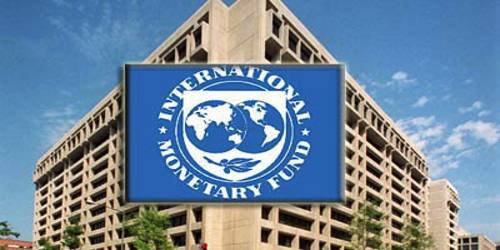The coronavirus pandemic will spark the worst global economic fallout since the Great Depression of the 1920s and 1930s, the International Monetary Fund (IMF) warned on Thursday.
“The world is facing an unprecedented crisis in the coming year, a period which would be unusually difficult,’’ IMF Managing Director Kristalina Georgieva, told a news conference in Washington.
Georgieva said that even if the pandemic loosens its grip in the second half of the year and parts of the economy were allowed to re-start, only a partial recovery could be expected.
The IMF chief emphasised how difficult it was to make prognoses of this kind.
The situation could end up being even worse, depending on how long the pandemic lasts.
The Fund’s warning came as the African Development Bank (AfDB) said it would soon act on the $1.1 billion budget support request from the Nigerian government through its fast disbursing crisis budget support facility.
Mr Ebrima FAAL, Senior Country Director of the bank, said yesterday that the Federal Government requested for one billion dollars budget support to mitigate financing gap arising from sharp fall in oil prices and its adverse impact on the overall economy.
He said the request also included $100 million to support ongoing efforts to contain the spread of the COVID-19 in the country.
According to him, the bank is currently discussing with the government on details of the request.
FAAL said the bank had been discussing with both the government and the Nigerian private sector in collaboration with other development partners on projects and programmes that would directly address difficulties arising from the COVID-19 crisis.
“All these will be fast disbursing loans with flexibility to help address the national response to the COVID-19 virus. “The bank has built up relevant experience from a range of emergency operations for natural disasters and disease epidemics.
“It was among the first development partners to approve an emergency operation in response to the Ebola epidemic in April 2014, and therefore has been able to deepen its capacity to work with key partners such as the WHO and the West African Health Organisation (WAHO).
“In general, the bank’s comparative advantage has been in providing budget support to affected countries. Budget support has advantages in terms of flexibility, helping Regional Member Countries to meet both the direct costs of their COVID-19 response and to manage the wider economic impacts and speed of response,” he explained.
The senior country director noted that the proposed package in Nigeria would respond to the government’s request, provide rapid, cost-effective and targeted emergency budget support through a fast-tracked approval process to provide immediate relief to Nigeria.

